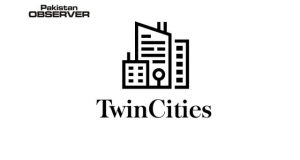Decent and affordable public transport facility in the ever-expanding cities with growing population makes mobility convenient and traveling easy not only for the local populace but also for the visitors from other parts of the country to explore maximum tourist spots in the shortest possible time.
It is the long awaited dream of the commuters of the twin cities of Rawalpindi and Islamabad to get good quality decent public transport facility on all major routes with affordable fare.
But over the years, the public transport has not been taken seriously in the capital city. Thus the existing public transport system has failed to meet the needs of the growing population.
Other than the functional metro bus service which covers only a designated route and a limited population, the remaining people either rely on formal or informal modes of travelling comprised of personal transport, private taxi/car or the existing obsolete transport of bus/van service.
The poor conditions and inhumanly attitude of the transport mafia in the well-planned modern city causes huge environmental pollution and inconvenience for the public at large.
Similarly, the current public transportation system is not suitable for the women’s mobility in the city.
According to the available data, historically major developments in Islamabad transport system included: The Government Transport Service (GTS, 1980s), Metro Radio Cub (a taxi-like service 2001), Varan Bus Service (private company), BRT (Bus Rapid Transit System 2015) and Careem (A ride-hailing company 2016).
The BRT has started working as one of the major long-distance public transportation means between the twin cities of Rawalpindi-Islamabad.
But a small portion of population had access to it as the service is being available in the area spanning from the easternmost of Islamabad to the center of Rawalpindi.
Regarding the Metro Bus project from Peshawar Morr to the New Islamabad International Airport, the Capital Development Authority (CDA) has decided last month to prepare a separate PC-1 for provision of missing facilities for completion of the pending part of the project.
Therefore, the CDA Chairman has directed the Project Director and consultants to ensure the procurement within four months to extend the facility to the citizens.
According to a study, statistically, from 1980 to 1998, Islamabad’s growth rate of vehicle population was 21.8%, which was the highest amongst the cities in Pakistan, and as of 2015, Islamabad, had the highest growth rate in the consumption of petroleum, compared to other parts of the country.
Therefore, due to missing facility of a feasible transport service for the masses in the twin cities has caused an exponential growth in private vehicles. Thus the situation has led to huge rush on the roads and environmental degradation.
Similarly, the citizens have also remained unsatisfied as the recent surveys conducted by the Pre-Feasibility Study have shown that more than 90% of passengers are unhappy with the current public transportation system of the city.
Likewise, low and middle-income households spend less money on transportation than high-income households but its expenditure makes up a higher proportion of their income compared to that of high-income households.
These two studies indicate that the transportation system in Islamabad presents an economical challenge to low and middle income households.
Expressing his displeasure over the missing facility of a reasonable public transport, Islamabad based working journalist Fawad Yousafzai told APP that most of the vans in the city don’t complete their designated routes.
He said, “Since March 2019 no fare-list (karayanama) was issued for the public transport while the existing transport is neither suitable for males nor for females. Islamabad is in dire need of a decent public transport, he added.
Sajjad Ali, a visitor to Islamabad, said that the missing facility of transport service for tourist destinations had made access difficult to scenic spots of the federal capital. He said, “Local public transport is wastage of time and private transport is wastage of money.”
Therefore, the tourists are left with no option to explore the scenic beauty of the federal capital, he added
The CDA spokesperson, Asif Ali Raza told the news agency that the civic body has approved Islamabad Bus Service which would be completed till February next year with the cost of Rs. 873 million.
Initially, the buses will run through the three designated routes: Sohan to Faisal Mosque, Bhara Kahu to Faiz Ahmed Faiz Metro Station and Ternol Railway Station to M5 Metro Station.
He said the project would later be extended to maximum routes of the capital city to meet the need of the growing population.
The civic body would connect the bus service with metro stations for making transport service more affordable for the general public, he added.—APP










